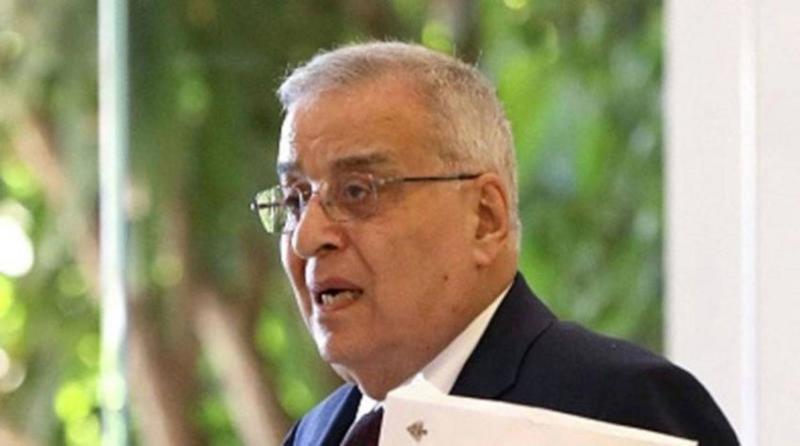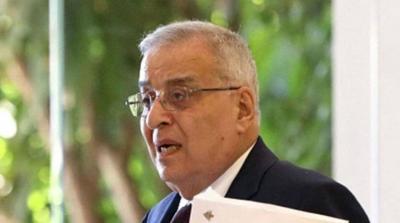Lebanese Foreign Minister Abdullah Bou Habib emphasized the importance of finding solutions to several issues, including the demarcation of borders with Israel and the refugees, urging the U.S. administration to "understand that the large-scale Syrian displacement to Lebanon is an existential threat to Lebanon."
In a special interview with Al-Hurra TV, Bou Habib stated that "Lebanon has requested the demarcation of the land borders between Lebanon and Israel," noting that "the latter was not ready; however, we sought the assistance of the Americans, and the U.S. President Joe Biden’s energy advisor, Amos Hochstein, came to Beirut, conducted talks, and confirmed he would discuss with the Israelis their readiness for this matter."
Bou Habib expressed hope for Hochstein's return to Beirut "to demonstrate the borders and prevent violations, most of which are Israeli and not Lebanese," suggesting that "if Hochstein returns to Beirut, he will carry a response from the Israelis."
Regarding the border demarcation with Syria, Bou Habib said: "There are no discussions, neither with the Israelis nor the Syrians, concerning the Shebaa Farms and Kfarshouba Hills, but this will be a second step after demonstrating the borders between Lebanon and Israel, after which we can negotiate with Syria and Israel with the help of the Americans."
On the tent set up by Hezbollah on the Lebanese-Israeli border that caused tensions with Israel, the Lebanese Foreign Minister stated that "this tent is not a violation because it is erected on private Lebanese land and not state land." He added, "We have informed them that we are not ready as an army to remove the tent. If the Israelis want to remove it, we told the Americans that they are free to do so, but there will be armed friction, and I don't think either party wants that. The tent is still there, and I don't know what will happen to it when the severe winter comes."
Regarding the fate of the presidential elections in Lebanon and the formation of a government, the Lebanese Foreign Minister stated, "The international efforts by the five countries, especially France, have not helped in reaching an agreement on the presidential elections to date." He expected that elections would not take place this year, explaining, "The efforts, I don’t want to say have failed, but they have not succeeded, and I do not see the parliamentary blocs agreeing on this matter."
On the new waves of Syrian displacement to Lebanon, Bou Habib confirmed that "the economic situation in Syria is not good, and in Lebanon, the situation is better, with dollars and jobs available for Syrians, and most of the youth coming from Syria have completed military service." He added, "When they are questioned by the Lebanese security forces, they say they want to pass through to Europe and use Lebanon as a transit to Europe, not by sea because we do not have the large boats, but via flights to other countries and then to Europe. Their concern is to go to Europe, not to stay in Lebanon."
Regarding calls in Lebanon to close the UN Refugee Agency offices, Bou Habib said: "Lebanon cannot exit from the international community and the United Nations, and even the UN resolutions, we are not satisfied with them, but we accept them because they are the guarantee for the presence of small countries... therefore, we will not do that, but we can impose many obstacles on organizations to address the situation."
Bou Habib called on the U.S. administration to understand "that the large-scale Syrian displacement to Lebanon is an existential threat that could lead to the disintegration of Lebanon and the Western countries." He noted that Europe is threatened by two million Syrian refugees and more than that from Lebanese. "Therefore, Europe needs to recognize its interests and work with us on this issue."
Regarding whether Syria is using Lebanon as a pressure card against Europe and the U.S. to lift sanctions, Bou Habib said: "That could be the case, but as the Foreign Minister, I do not have information on this matter. However, analyses in the newspapers suggest that."




